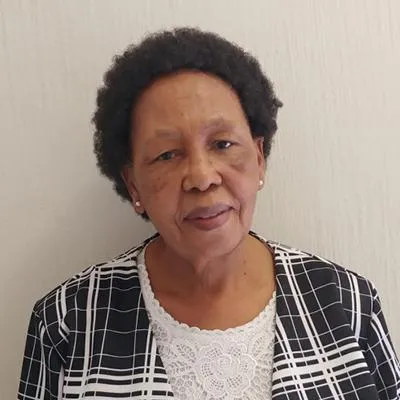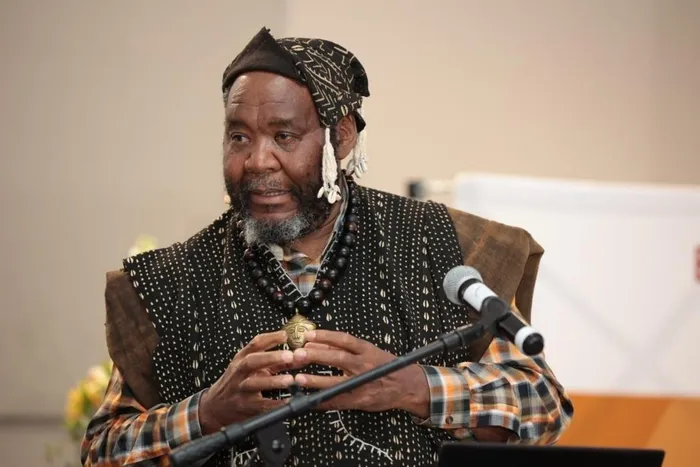Tribute to Dr Anne Letsebe: South Africa has lost a seasoned civil servant

Dr Anne Letsebe is no more. She was laid to rest on Friday.
Image: Supplied
Dr Anne Letsebe is no more. She was laid to rest on Friday. South Africa has lost a seasoned civil servant — one chiselled in the Cabinet Secretariat of President Nelson Mandela and refined under the unified Cabinet Committee system led by Reverend Frank Chikane during President Mbeki’s administration.
Dr Letsebe’s professional journey reflected a rare blend of intellect, integrity, and dedication to the public good. She took a deep interest in statistics, and when I became the Statistician-General of South Africa in 2000, I worked closely with her. Our relationship continued into retirement, bound by shared commitments to evidence, governance, and transformation.
Now that she belongs to the Ages, she joins another departed colleague, Dr Lulama Makhubela, with whom I worked on the South Africa Women In Dialogue (SAWID) Transdisciplinary Study in 2020/2021. That study, initiated in June 2020, was launched ten months later at UNISA in March 2021. Yet the launch was shadowed by the passing of another formidable leader, Dr Vuyo Mahlathi, whose energy had drawn me into this all-women movement — where I felt like an honorary woman. The launch was dedicated to her memory.
Though Dr Letsebe could not attend, she sent me a note that carried immense meaning:
“Congratulations on the launch of the report and for the associated hard work. I had an urgent family matter to attend to, which kept me occupied till last night. I had hoped to join sometime before the end, but this was not to be. I have not been able to read the full report, however, the executive summary reads very well. Prof Lu and the team, the sleepless nights were well worth it. Many thanks.”
Indeed, sleepless nights were necessary to meet the deadlines set by Dr Mahlathi. These women, now departed, carried the sharp edge of the blade in their pursuit of justice and equity. They fought to make South Africa better, and they did so to their very last breath.
Dr Letsebe, tasked with monitoring, took to statistics like a fish to water. When I invited her to the Partners in Development of Statistics in the 21st Century (PARIS21) forum, she joined without hesitation. There she found herself among pioneers such as Mary Strode and Professor Ben Kireygera, later the first Director of the African Centre for Statistics at UNECA. With her keen mind and willingness to challenge ideas, she strengthened our collective efforts to build a formidable statistical system.
Her clarity and steadfastness were especially crucial when we developed South Africa’s first poverty lines, based on Martin Ravallion’s work at the World Bank. Stats SA had the data — census results from 1996 and 2001, an Income and Expenditure Survey in 2000, and the General Household Survey, which enabled us to model poverty with unprecedented scope and depth. But tensions arose: the World Bank was eager to publish, while Stats SA prioritised quality and the long-term utility of the data. With support from colleagues like Miriam Babita, and crucially, with Dr Letsebe’s guidance from the Presidency, we were able to rein in external pressures. Her insight allowed us to set the terms of collaboration, ensuring that South Africa’s statistical integrity was never compromised.
That was Dr Letsebe: a sharpened civil servant who understood the delicate balance between evidence, politics, and public accountability. In recent years, we engaged on the Fundamental Principles of Official Statistics and the evolving debates on data sovereignty. She brought clarity of thought to complex issues, helping us anticipate risks and frame responses that were rational, politically manageable, socially desirable, and financially sound.
Today, as South Africa grapples with leadership that sometimes struggles to articulate the true meaning of data sovereignty and how to safeguard it, I cannot help but think: Dr Letsebe would have adjudicated such matters with wisdom and precision.
May her soul rest in eternal peace.

Dr Pali Lehohla is a Professor of Practice at the University of Johannesburg, among other hats.
Image: Supplied
Dr Pali Lehohla, Professor of Practice at the University of Johannesburg, Research Associate at Oxford University, Distinguished Alumnus of the University of Ghana, and former Statistician-General of South Africa.
*** The views expressed here do not necessarily represent those of Independent Media or IOL.
BUSINESS REPORT